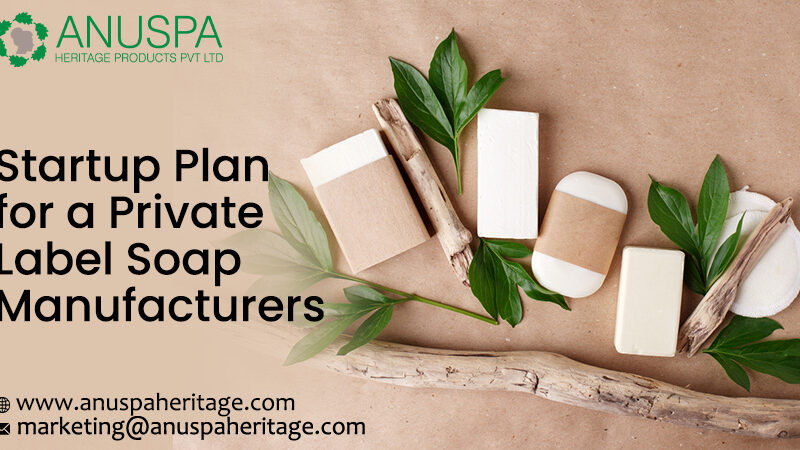
Soap is a fast-moving consumer good (FMCG) used by billions of people daily. A startup plan for a soap manufacturing business is needed. The soap industry is broken up into several segments, including laundry, personal use, and veterinary use. Large consumer goods companies dominate the personal care soap market; however, the veterinary and laundry markets are either fragmented or controlled by a small number of major corporations. Anuspa Heritage is a perfect example of a soap manufacturing company. We’ll go over the steps, financial requirements, and business plan for starting a soap manufacturing business in India in the post of Private label Soap Manufacturers.
The Making of Soap
Making soap is a relatively straightforward process, that necessitates little investment in plant and equipment. Three steps are involved in making personal or beauty soap: making the final foundation, stamping, and the base for the soap. The primary raw materials for soapmaking are oils and fats. The kinds of raw materials and additives used to determine the final product. To make toilet soap, also known as lye, liquid fats like vegetable oils or animal fat are typically combined with an alkali like sodium hydroxide. In addition to the aforementioned raw materials, transparent soaps frequently contain sorbitol and glycerin, whereas antibacterial soaps use triclosan, a chemical that kills bacteria and prevents fungi from growing.
Money Required
It takes very little capital to start a small soap manufacturing business or a business of Handmade Soap Manufacturers. Whenever run appropriately, a cleanser creation office that expenses around Rs, starting with 15 lakhs, can bring in as much as Rs.50 lakhs in earnings and Rs.8 lakhs in revenue. The following is a breakdown of both the anticipated revenue and the necessary investment:
Building and land requirements
A small soap manufacturing facility needs about 750 square feet, of which 500 square feet must be built. For the financial model, we assumed that such a location could be acquired for approximately Rs.5 lakhs, in addition to the required power and water supply.
Machines
A small Private label soap manufacturing company with low costs for equipment is required. Often, soap cutters, plodder machines, sap stamping machines, and millers are on the production list of equipment for making soap. The scale and type of product to be produced would determine the machinery’s type and cost. A modest soap manufacturing facility could cost anywhere from Rs.1 and Rs. An investment of five lakhs. After acquiring all necessary permits, equipment, raw materials, etc., setting up a unit typically takes three to six months.
Money Employing
Most of the private label soap manufacturing facility’s working capital expenses. They are related to raw materials, salaries and labor, power costs, and receivables. For soap manufacturing like the Anuspa Heritage facility to function correctly, Rs.2.5 lakhs must be available. In addition, Rs. Salaries, power, and receivables are expenses that require one to two lakhs in working capital. As a result, the promoters require between Rs. to function effectively—6 and 10 lakhs of working capital funds, based on a working capital cycle of three months.


Recent Comments